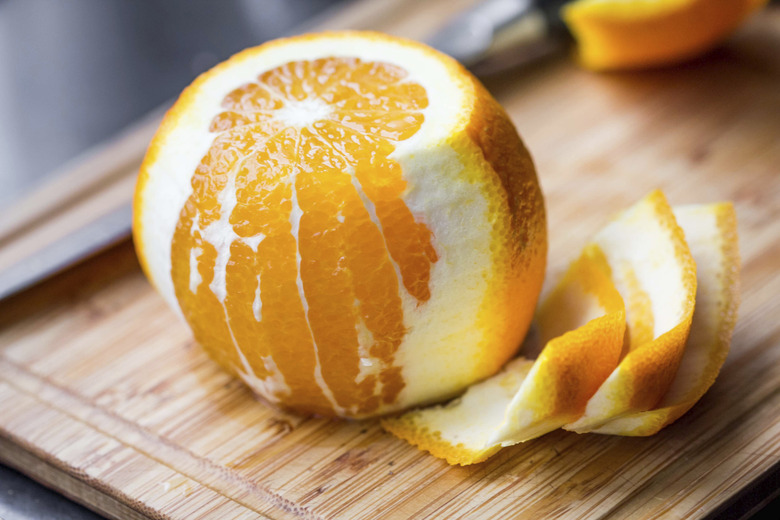How To Compost Orange Peels
Composting almost seems like magic. If you're an avid gardener, you may regularly turn garbage into rich, organic humus in your backyard compost bin. Grass clippings, vegetable scraps, coffee grounds — almost anything that was once a plant — will decompose in the bin over time. You can speed up the composting of thick citrus peels by cutting them into smaller pieces before adding them to the pile.
Composting almost seems like magic. If you're an avid gardener, you may regularly turn garbage into rich, organic humus in your backyard compost bin. Grass clippings, vegetable scraps, coffee grounds — almost anything that was once a plant — will decompose in the bin over time. You can speed up the composting of thick citrus peels by cutting them into smaller pieces before adding them to the pile.
Garbage Into Gold
Composting involves decaying kitchen scraps, but that doesn't make it seem like less of a miracle. The process is simple enough: You pile organic matter in a sunny corner in the yard and mix in dry materials, like dead leaves or shredded newspapers. In a matter of months, the pile transforms into dark, rich compost, a natural boost for vegetable gardens, plants and flowers.
- Composting almost seems like magic.
- In a matter of months, the pile transforms into dark, rich compost, a natural boost for vegetable gardens, plants and flowers.
What Goes In
Almost anything organic will break down into compost, thanks to the bacteria at work in the compost bin. But you get better results if you are choosey about what goes in. Don't include animal products or anything with animal fat — like cheese — in an open bin. Meat, bones, cheese, lard and milk products attract rats, raccoons and other undesirable critters. Don't add diseased plants or those treated with chemicals either as you risk returning these to the garden. Don't add perennial weeds that have seeds on them.
Helping Nature Along
Some materials are slower to break down than others, like corn husks and citrus peels, including orange peels. You can speed the disintegration along by chopping, shredding or liquefying them in a blender. Work vegetable and fruit scraps into the center of the compost pile where breakdown occurs more quickly. This also keeps them from attracting pests.
- Almost anything organic will break down into compost, thanks to the bacteria at work in the compost bin.
Worm Composting
It's not always clear whether orange peels belong in the compost bin. You'll see gardening blogs that say citrus is too acidic for composts and that it contains toxins. This advice does not apply to regular, backyard compost bins, but only to worm composting. A wormery is a closed composting system in which red worms do all the work, unaided by the microorganisms present in regular composting. Because worms don't like an acidic environment, it's better not to toss in orange peels in worm bins, but it's fine in regular compost piles or bins.
